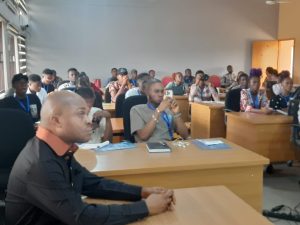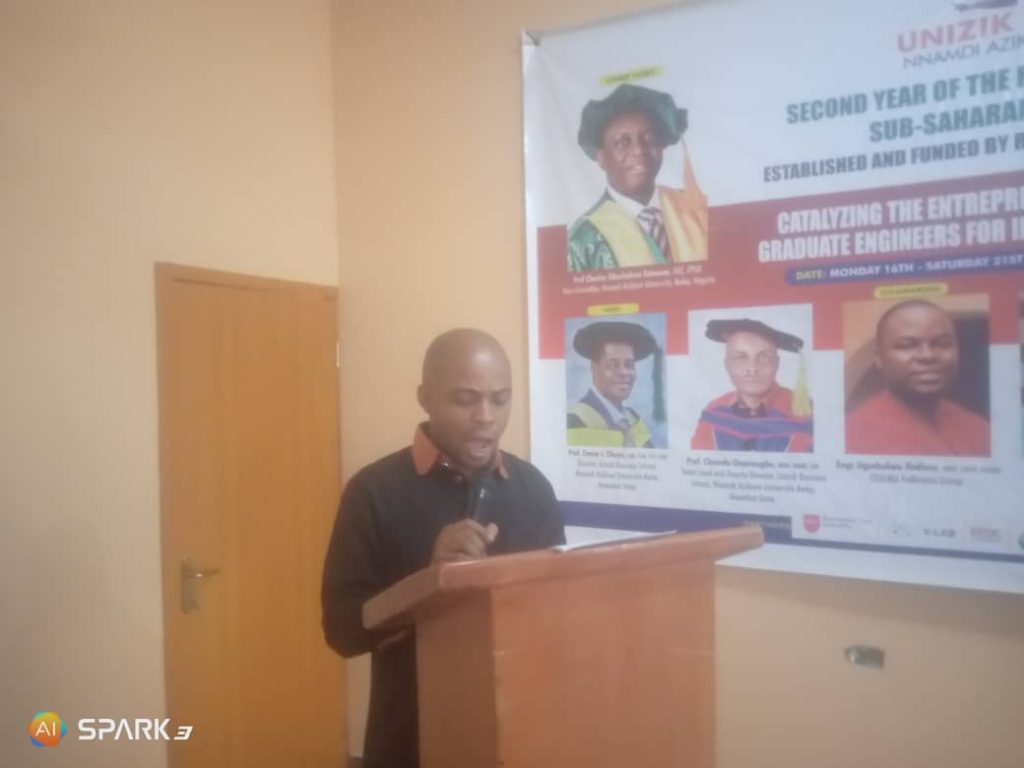Lawrence Nwimo, Awka
UNIZIK Business School (UBS) in Nnamdi Azikiwe University, Awka, has launched the second and final phase of the training of Engineering Students on alternative electricity and energy systems.
The programme is under the Higher Education Partnerships in Sub-Saharan Africa (HEP SSA) ’22/24, established and funded by the Royal Academy of Engineering, United Kingdom (UK).

It is an international collaboration project titled: “Catalysing the Employability and Entrepreneurial Impact of Nigerian Graduate Engineers in the Electricity Industry as a Strategic Way to Improve Access to Electricity in Nigeria.
The programme was sequel to an award of £100,000 received by Nigeria and five other African countries aimed at improving engineering capacity in Sub-Saharan Africa by enhancing the knowledge, skills, capacity, and employability of African engineering graduates.
It is also aimed at building on the research and innovation capacity of engineering students of higher education institutions and stimulating ties with industry to increase the scale of impact.
Team Lead and Deputy Director of UNIZIK Business School, Professor Chinedu Onyeizugbe, in his introductory speech, said the grant was attracted after careful analysis of some of the key issues plaguing the Nigerian electricity sector.
According to him, “Having drawn up a plan of action to at least, move the needle on one of these issues – the critical matter of insufficient and inadequately skilled manpower, we set out on this journey to catalyse the employability and entrepreneurial impact of Nigerian graduate engineers in the electricity industry.
“We believed that doing this would be key and strategic to the improvement of electricity access in Nigeria.
“Although armed with ideas and what seemed like a blueprint, a master plan to get to our desired destination, we didn’t and indeed, couldn’t have set out to execute our ideas and fill the observed gaps on our own. It took the remarkable support of our grant sponsor, The Royal Academy of Engineering, United Kingdom, to set the ball rolling. The Royal Academy of Engineering has funded this project to the tune of GBP 100,000 and has also provided other logistics and training support.”
Prof Onyeizugbe said a combined 50 participants were selected from selected higher education institutions in South-East, Nigeria. He also said the 50 participants would be trained in an intensive weeklong workshop.
“The participants would be trained in essentials for entrepreneurial development, business, and managerial skills, as well as technical skills required to set up and maintain alternative, clean energy systems such as solar power systems.
“On completion of their training, the project participants were placed with our industry partners for rigorous, hands-on industry training where they have been stationed since.”
Earlier in her welcome address, the Programme Officer for African Programmes, Royal Academy of Engineering, Mrs. Kitty Chishti, said the Programme was designed to enable higher institution systems in Sub-Saharan Africa to produce engineers with the skills and knowledge required to meet the needs of industry.
She also said it was to improve capacity to tackle local and global challenges.
A statement on Saturday by Ugochukwu Ifediora, an Alumnus of the Royal Academy of Engineering/Chief Executive Officer of Fedironics said the Alumnus (Ifediora) and Dr Chinedu Onyeizugbe, an Associate Professor and the Deputy Director of Unizik Business School, attracted the award.

